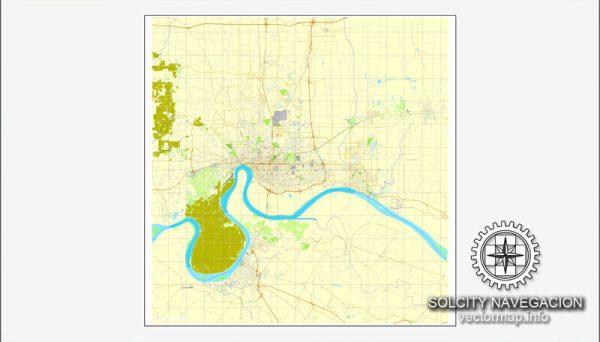Evansville, Indiana, located in the southwestern part of the state, has a rich history that reflects the broader historical trends and developments in the United States. Here is a brief overview of the history of Evansville:
- Early Settlement and Native American Presence: The area that would become Evansville was originally inhabited by various Native American tribes, including the Shawnee and Miami. European settlers began to arrive in the late 18th century, and by the early 19th century, the land was being surveyed and developed.
- Founding and Growth: Evansville was officially founded in 1812 and named after Colonel Robert Morgan Evans, an officer in the War of 1812. The town’s location along the Ohio River played a significant role in its growth and prosperity. It became a hub for trade and transportation, with riverboats serving as a vital means of commerce.
- Transportation Hub: The development of transportation infrastructure, such as canals and railroads, further boosted Evansville’s status as a regional transportation hub. The Wabash and Erie Canal, which connected Evansville to Lake Erie, played a crucial role in the city’s development as a center of trade and industry.
- Industrialization and Economy: In the 19th century, Evansville’s economy expanded, with industries like lumber, shipbuilding, and manufacturing taking root. The city became known for its production of furniture, stoves, and other goods, and it continued to be a key trading center along the Ohio River.
- The Civil War and Post-War Era: During the American Civil War, Evansville was an important location for the Union Army, and it served as a transportation and supply center. After the war, industrial development continued to surge, and the city’s economy diversified with the emergence of new industries.
- Educational and Cultural Institutions: Evansville established educational and cultural institutions over the years, including the University of Evansville and the Evansville Museum. These institutions helped foster education, arts, and culture in the city.
- 20th Century and Beyond: In the 20th century, Evansville continued to grow and diversify its economy. It became a major center for manufacturing, healthcare, and education in the region. The city also faced its share of challenges, such as flooding from the Ohio River, which led to efforts to protect against floods.
Today, Evansville is known for its strong healthcare sector, higher education institutions, and cultural attractions. It remains a significant industrial and commercial center in Indiana and continues to be influenced by its location along the Ohio River, which has shaped its history and development throughout the years.


 Author: Kirill Shrayber, Ph.D. FRGS
Author: Kirill Shrayber, Ph.D. FRGS